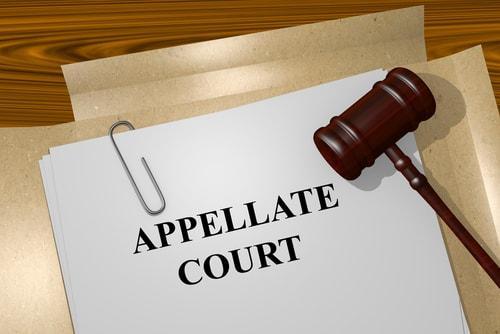Wheaton |
St. Charles |
Sycamore
 630-665-7300
630-665-7300
Appealing a Divorce Judgment
 A divorce can be extremely stressful and difficult for everyone involved. Regardless of how long the marriage lasted or whether or not there are any children involved, virtually all divorcing couples face complex legal considerations and lifestyle adjustments. When divorce decisions are left to the discretion of the court, it is common for both spouses to be somewhat disappointed in the outcome. In some cases, a spouse may even believe that the court made a mistake in interpreting or applying the law. While many people assume that a divorce decree is final, this is not always the case.
A divorce can be extremely stressful and difficult for everyone involved. Regardless of how long the marriage lasted or whether or not there are any children involved, virtually all divorcing couples face complex legal considerations and lifestyle adjustments. When divorce decisions are left to the discretion of the court, it is common for both spouses to be somewhat disappointed in the outcome. In some cases, a spouse may even believe that the court made a mistake in interpreting or applying the law. While many people assume that a divorce decree is final, this is not always the case.
When to Appeal a Divorce Decision
In any legal matter—especially those that make to trial—at least one of the parties is going be left feeling that the outcome was unfair. A divorce is fairly unique in that most judgments represent a compromise of sorts meaning that there is no clear "winner" or "loser." If, however, the judgment seems to favor the other party, it is understandable to experience feelings of frustration and disappointment. Simply being dissatisfied, however, is not sufficient grounds for an appeal.
Filing an appeal regarding your divorce decree is a serious consideration, as an appeal is a claim that the original court made some type of error in deciding your case. You may believe that the court did not properly consider the evidence presented or the law was applied improperly to your situation. An appeal could also be based on inconsistencies in the court's findings.
What Will an Appeals Court Review?
When your case is heard on appeal, it is not really a second chance at proving your case. You will not have the opportunity to present new information. Instead, the appeals court will review the testimony and evidence that was presented during the initial proceedings. In doing so, the appellate court—usually as a three-judge panel—will also look at the trial court's methodology and reasoning in issuing its decision.
Based on its findings, the appeals court may affirm the trial court's ruling or reverse the lower court's decision. In some cases, a reversal also results in the matter being sent back—remanded—to the trial court for further consideration, usually with specific directions from the appellate court.
Speak With a Lawyer
If you need guidance regarding your divorce, MKFM Law can help. Our experienced Kane County family law attorneys have the knowledge and skill to protect your rights even after your divorce judgment has been issued. Call 630-665-7300 to schedule a confidential consultation with our firm today.
Sources:
https://www.isba.org/ibj/2013/07/tentipstoimproveyourcaseonappeal
http://www.divorcemag.com/articles/we-lost-now-what-perfecting-the-appeal


 Read More
Read More





